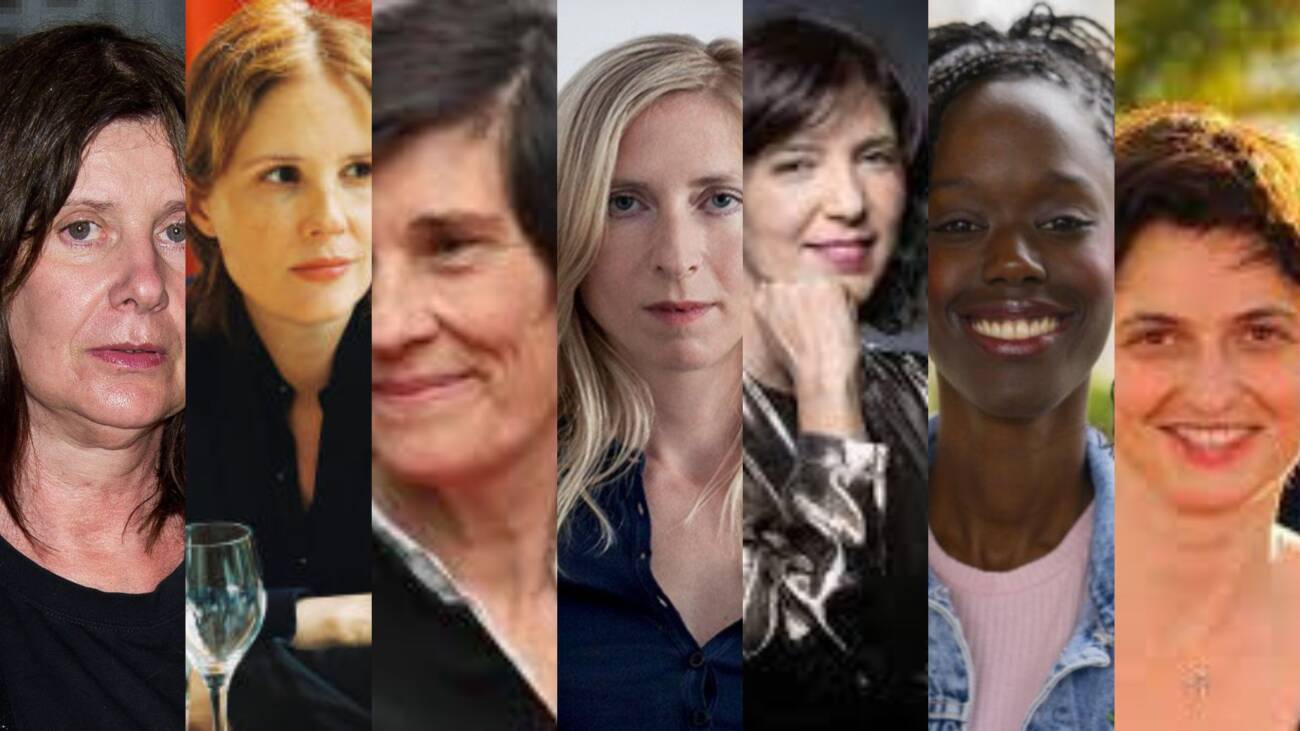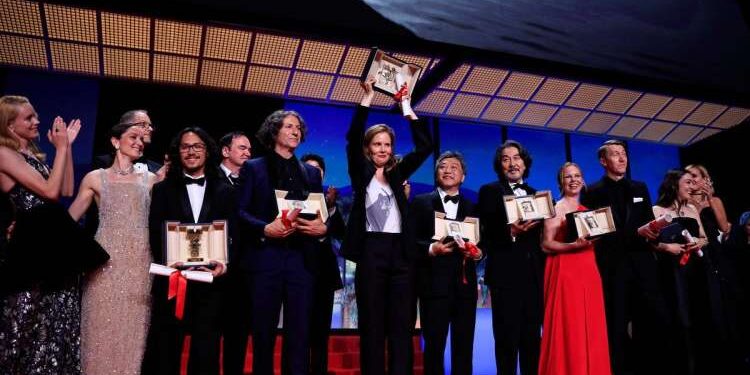A dozen days have passed since the closure of the 76th Cannes Film Festival, marking the right moment to take stock of this edition.
Overall, The festival offered a remarkable selection of filmshighlighting confirmed directors such as Turkish Nuri Bilge Ceylan and Italian Marco Bellocchio, that very promising young talents Like the Tunisian Kaouther Ben Hania And the Senegalese Ramata-Toulaye Sy, whose first film was selected in official competition feature films.
This opening to new directors is accompanied by a geographical opening towards new countries, such as Sudan and Moldova, allowing to discover new cinematographic cultures and thus enriching the diversity of the event.
This widening of the horizons particularly benefited from African cinema and in Arabic cinema, with no less 14 Arab films selected in the different sectionsincluding 12 in competition. Seven of these films have also won prizestestifying to the quality and relevance of these cinematographic productions.
However, it is unfortunate to note that certain films in the official competition have not been selected for their intrinsic quality, but rather for the fame of their directors. Big names in cinema have offered works below expectations. We can cite in particular Ken Loach with his film The old oakTodd Haynes and May DecemberKarim Aïnouz and Firebrand, as well as Nanni Moretti with Il Sol Dell’Avvenire. The jury was not fooled and chose to ignore them during the price distribution.
Concerning the prize listthere have been few surprises. The awarded films were generally those who had been welcomed by criticism and the public. However, a question remains unanswered: why has the choice of the Palme d’Or fell on Anatomy of a fall rather than Zone of Interest ?
This 76th edition was also marked by a more important female presence, which raises the question of the influence of the new president of the festival. Indeed, the share of directors selected in official competition reached a record of 33% this year (7/21). However, it is important to note that despite this progression, we are still far from reaching parity between women and men.
If we look at the history, we see a gradual increase in the presence of the directors in Cannes. In the 2000s, they represented only 9% of films in official competition, then this figure increased to 12% in the 2010s, reaching 24% since 2021. Nevertheless, the number of films selected made by women remains much lower than that made by men, with only 93 films on the 76 editions of the Festival, against 1697 made by men.
Regarding the awards, the figures remain low. Since the creation of the Cannes Film Festival, only 2.25% of golden palms have been awarded to directors, while Berlin and Venice have displayed higher figures with 8% gold bear and 11% gold lions won by women. At the three combined festivals, the Grand Prix was awarded between 4% and 9% of the time to directors.
French director Justine Triet won the Golden Palme of the 76th Cannes Film Festival for her film Anatomy of a fall. She thus becomes the third director to win this prestigious prize, alongside Jane Campion for The piano lesson (Palm of gold ex-aequo in 1993) and Julia Ducournau for Titanium (Palme d’Or in 2021).
In total, nine directors were awarded during this year’s Cannes Film Festival, whether in official competition or in parallel sections. In addition to Justine Triet and her palm of gold, he flóra Anna Buda, who won the golden palm of the short film for 27,, Molly Manning Walker, winner of the Un Certain Regard Prize for How to have sexRenée Nader Messorai, co -director with João Salaviza of the film Crowrã (La Fleur de Buriti) who won the overall a certain look and asmae el moudir who won the a certain look for the staging for The mother of all lies. Other directors, such as Elena Martín Gimeno, Amanda Nell Eu, Paloma Sermon-Daï and Iris Kaltenbäck, were also recognized for their works.
It is important to highlight the other awards awarded to various directors during the festival, Especially in Kaouther Ben Hania who distinguished himself by winning four prizes, including the golden eye for the best ex-aequo documentary with Asmaé El Moudir.
All these awards testify to the recognition of the talent of women filmmakers and their significant contribution to the film industry.


The implementation of the electronic ticketing during the Cannes Film Festival has caused major logistical problems. Initially established in 2021 in response to the COVID pandemic, It was renewed in 2022 and 2023, but its functioning turned out to be disastrous, and even worse, it did not even manage to solve the problem of long queues, which was however its main objective!
This electronic ticketing system has made the experience less attractive, because festival -goers are forced to choose from the available tickets, rather than selecting the films they really want to see, which is not very pleasant. In addition, the algorithm used for electronic ticketing seems to escape any understandable logic.
In addition, tickets must be reserved four days in advance, which does not allow any flexibility to adapt to circumstances. There is no possibility of modifying the schedules according to the unforeseen events.
Having to wake up before 7:00 am, the opening time of the ticket office, is also a constraint, because barely a few minutes late can mean the exhaustion of tickets. This time constraint does not allow you to rest properly, especially if we attended a late session the day before. In the long run, this rhythm becomes exhausting, and it is difficult to hold during the twelve days of the festival.
The question then arises: why 7:00 am? Why not open the ticket office at 8:00 am, for example? Such a modification could allow festival -goers to benefit from a little more rest and better manage their energy on the duration of the festival.
Another regrettable aspect is the priority granted, during certain projections, to the muses of partner marks, to “influencers” and to the various officials or famous personalities, to the detriment of people who really wish to watch the films. Tickets are reserved for them, but they do not take advantage of it, sometimes contenting themselves with a climb of the steps and discreetly disappearing through the entrance to the artists. Thus, the sessions are announced as “complete”, while many seats remain empty. It is true that sometimes these places are occupied by people who have queue at the last minute, but the question that arises is: why?
It is obvious that the presence of celebrities and influencers, especially when climbing the steps, generates great visibility for the festival and its partners. However, this practice raises questions about equity in access to projections and highlights a preference given to certain categories of spectators to the detriment of real moviegoers or cinema professionals. This creates frustration for those who wish to fully live the experience of the festival and who find themselves faced with rooms with empty armchairs when they could have occupied these places.
For the future, it is essential to rethink the policy of distribution of tickets and to ensure that places are allocated in a fair way, and why not by favoring cinema enthusiasts and people really interested in projections. This would enhance the cinematographic experience and make the Cannes Film Festival accessible to all those who really have the desire and passion.
Neïla Driss








